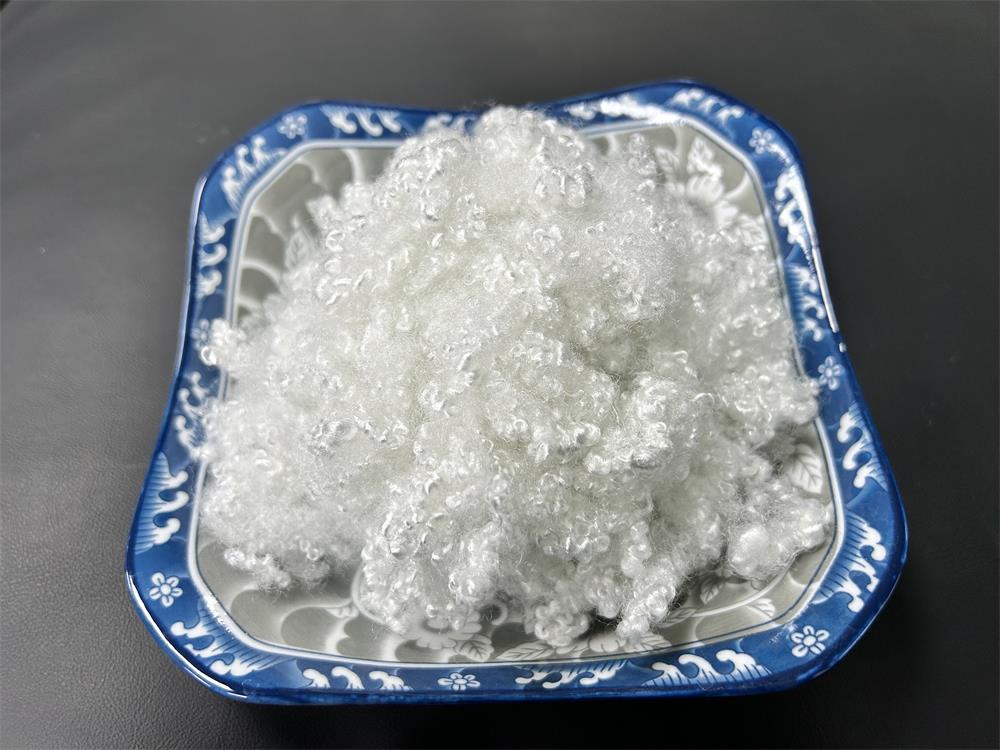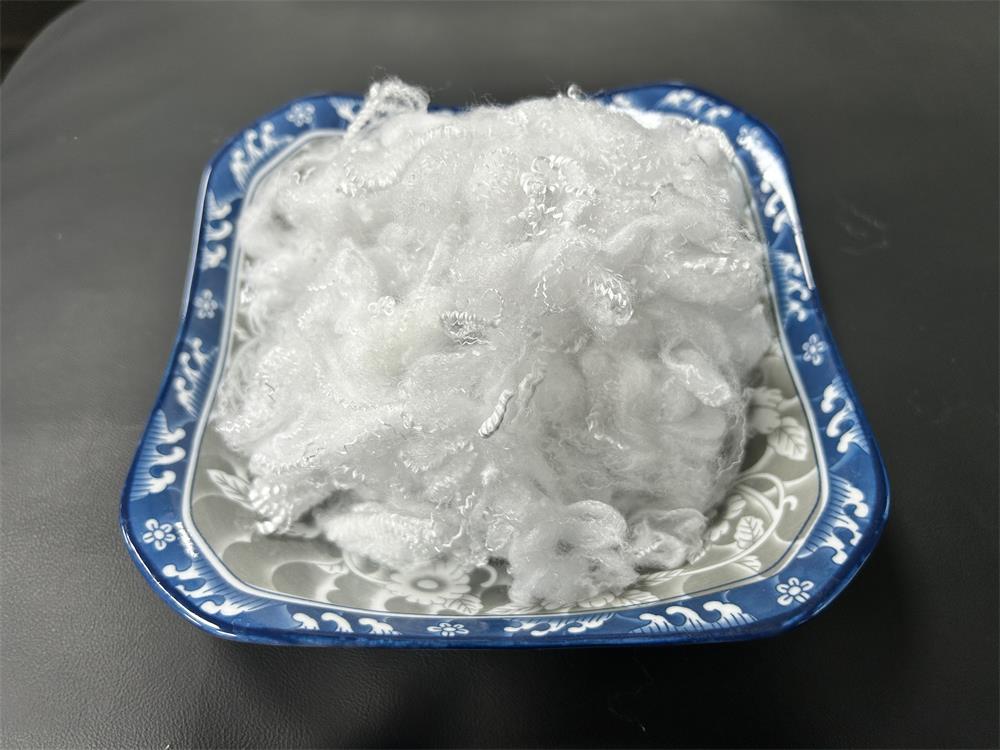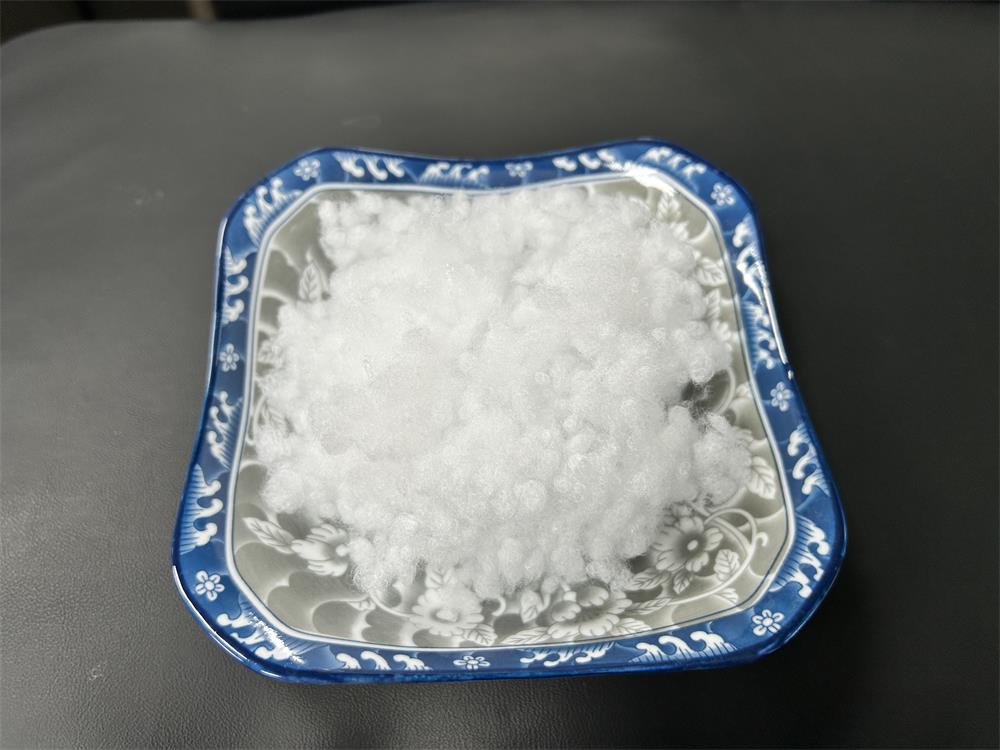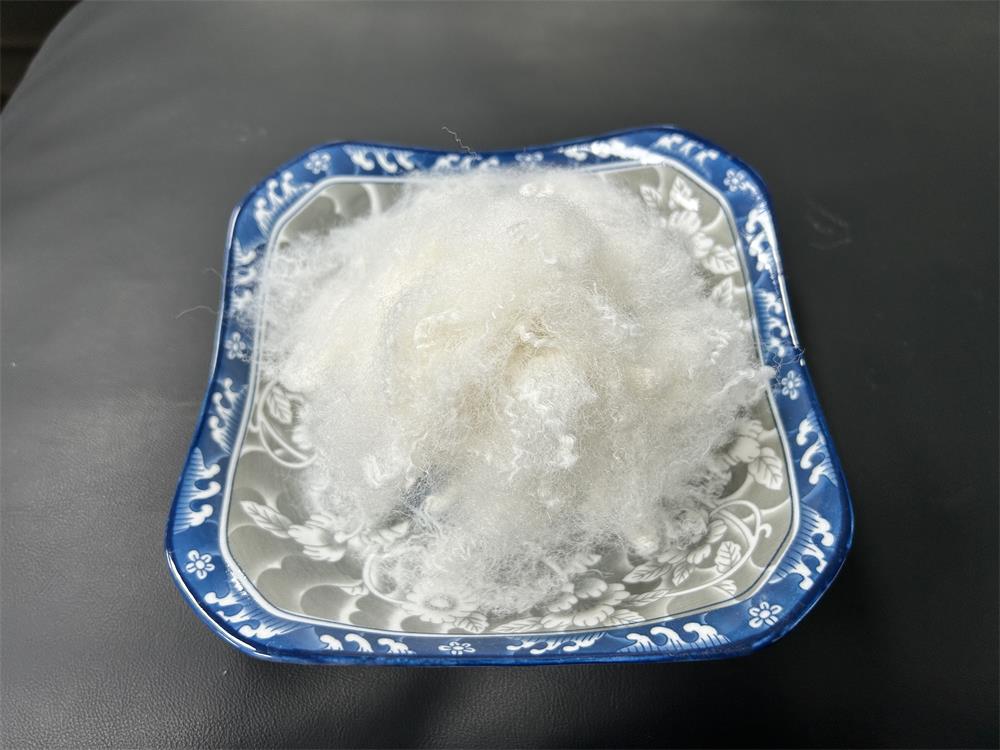An introduction to innovations in recycled polyester fibers:
The textile industry is at the forefront of innovation in our pursuit of sustainable living. In today's environmentally conscious world, seeking sustainable alternatives is more important than ever. Among them, recycled polyester has become a leader, bringing a greener future to fashion and other fields. But what makes recycled polyester a sustainable choice? Let’s uncover the layers of its environmental impact and explore why it’s winning accolades as a champion of sustainability.

1. Use recycled polyester fiber to protect the environment:
Recycled polyester starts its journey with post-consumer plastic bottles or discarded polyester clothing. By diverting this waste from landfills and oceans, recycled polyester plays a key role in controlling pollution and protecting natural resources. Unlike traditional polyester production, which relies on fossil fuels and consumes non-renewable resources, recycled polyester significantly reduces carbon emissions and energy consumption, making it a sustainable alternative with a smaller ecological footprint.

2. Use recycled polyester to reduce waste:
Staggering amounts of plastic waste pose an urgent global environmental challenge. Recycled polyester offers a practical solution by repurposing this waste into valuable materials. By closing the loop on plastic production, recycled polyester minimizes the need for virgin resources, mitigates the environmental impact of waste disposal, and promotes a circular economy of material reuse, recycling and regeneration, fostering a more sustainable and resilient ecosystems.
3. Using recycled polyester fiber can save energy and water:
Recycled polyester consumes fewer resources and produces fewer greenhouse gas emissions than the energy-intensive process of producing virgin polyester. Research shows that recycled polyester production can reduce energy consumption by up to 50% and water use by up to 20-30%, thereby saving valuable resources and reducing the environmental pressure associated with textile manufacturing. By adopting recycled polyester, industries can significantly reduce their carbon footprint and contribute to global efforts to combat climate change.

4. Quality and performance of recycled polyester fiber:
In addition to the environmental benefits, recycled polyester offers comparable quality, durability and performance to virgin polyester. Whether it’s apparel, activewear or outdoor gear, products made from recycled polyester have the same properties as traditional products, proving that sustainability doesn’t come at the expense of functionality or style. By choosing recycled polyester, consumers can enjoy high-quality products while supporting sustainable practices and responsible consumption.
5. Collaborative innovation of recycled polyester fiber:
The transition to a more sustainable future requires collaboration and collective action across sectors. Major brands, retailers and manufacturers are increasingly adopting recycled polyester as part of their sustainability commitments. Through collaboration, research and innovation, stakeholders are driving demand for recycled materials, investing in environmentally friendly technologies, and reshaping the textile industry towards a more circular and renewable model.

Conclusion on the environmental protection effect of using polyester fiber:
In a world striving for sustainability, recycled polyester has become a beacon of hope, offering a viable solution to the environmental challenges posed by traditional textile production. By harnessing the power of recycling, we can turn waste into opportunity, minimize our ecological footprint, and pave the way for a more sustainable and prosperous future. As consumers, businesses and policymakers unite in a commitment to sustainability, recycled polyester is poised to lead the green revolution and inspire positive change across industries and communities.
Post time: Mar-15-2024
